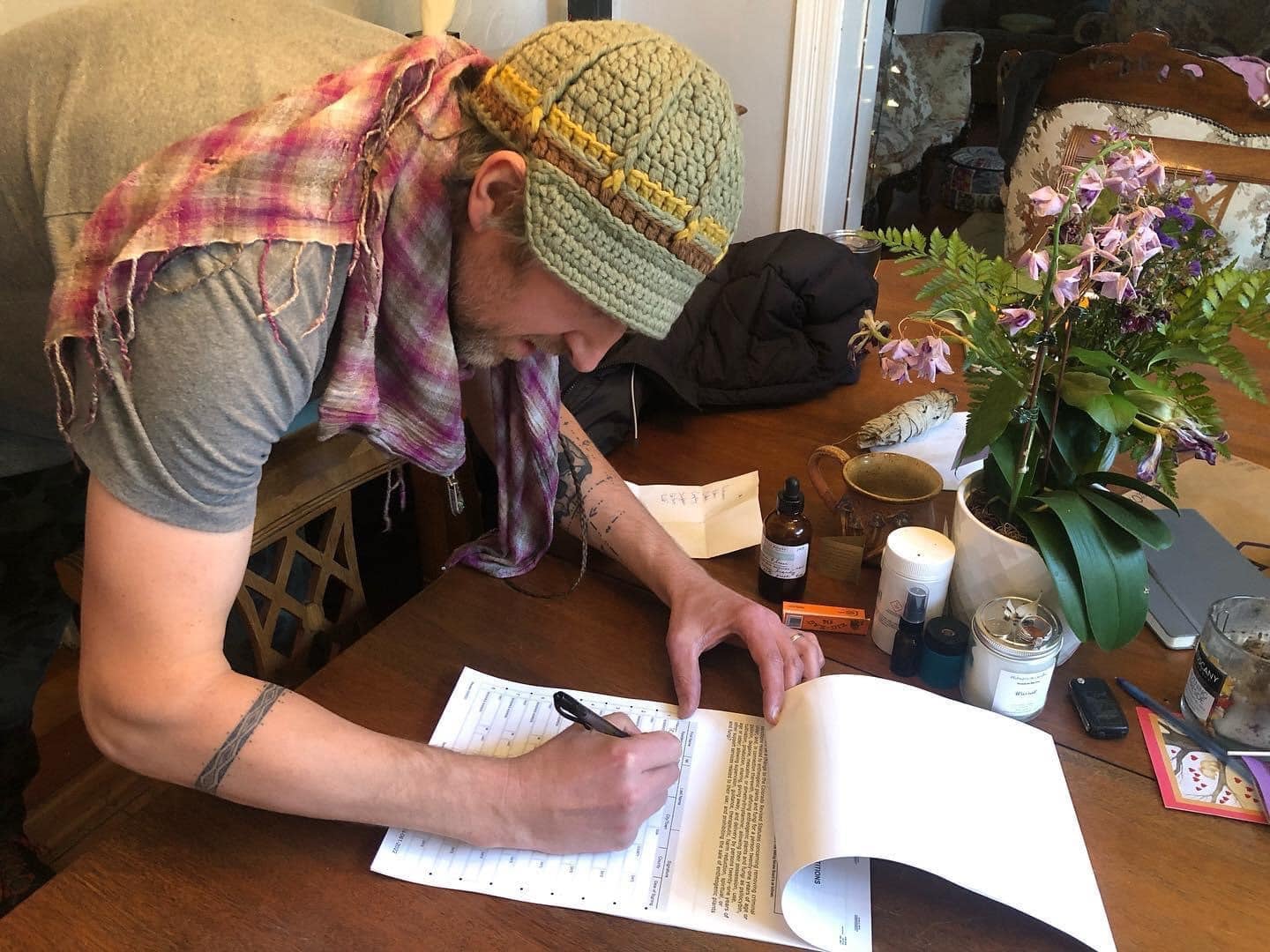Colorado activists representing two different and competing campaigns are now going all-out in the hopes of reforming the state’s psychedelic laws by popular vote in November. Each campaign first has to collect a required number of valid voter signatures—124,532—by August 8 for its measure to be placed on the ballot. Afterwards, it’ll be in voters’ hands. Victory for either effort would mean significant progress, after the state’s largest city, Denver, made history by voting to decriminalize psilocybin mushrooms in 2019.
Decriminalize Nature Colorado is leading Initiative 61. The measure is simple: It removes psilocybin, psilocin, DMT, ibogaine and mescaline from the state’s criminal drug statutes. Sharing, cultivation, communal use and harm reduction services would all be protected.
Meanwhile, Natural Medicine Colorado is leading a separate effort: Initiative 58. It would decriminalize use, possession, cultivation and sharing of psilocybin and psilocin, DMT, ibogaine or mescaline (excluding the peyote cactus). It would also allow people to be paid for psychedelic harm reduction services like “trip sitting” or “guiding”—as long as no money changes hands for the drug itself. It would also allow prior criminal records for these drugs to be sealed.
Initiative 58 would additionally legalize psychedelic “healing centers,” where people could access these substances in highly regulated settings with trained “facilitators.” This plan definitely takes some cues from Measure 109 in Oregon, which was approved by voters in November 2020 and is in the implementation phase. Similarly, Initiative 58 would require a two-year implementation phase, where an independent “advisory board” would research and recommend rules and regulations for Colorado’s Department of Regulatory Agencies (DORA) to approve.
Initiative 58 includes “a specific provision to make this program accessible and affordable to the most marginalized among us.”
But Initiative 58 has important differences from Oregon’s psilocybin reform, like allowing at-home psychedelic care for elderly or severely ill people. And the biggest difference is that while Measure 109 applies only to psilocybin, Initiative 58 would regulate more types of psychedelics. It would initially allow regulated psilocybin healing to commence in September 2024. Then the advisory board would conduct research and decide if these services should be expanded in the following two years to include ibogaine, DMT or mescaline.
And that’s not all. “A very significant difference [from Oregon] is that in the regulatory language, we did include a specific provision that requires the DORA to create systems and processes to make this program accessible and affordable to the most marginalized among us,” Kevin Matthews, chief petitioner for Initiative 58 and a Denver psilocybin policy review board member, told Filter. “That includes folks disproportionately impacted by high rates of arrest, veterans, and folks who can’t afford this.”
The language ensures benefits like reduced licensing fees and reduced cost of treatment for these populations. Matthews said that to date, Initiative 58 has collected and validated over half the voter signatures it needs.
Initiative 61 “is focused on ensuring equitable access, rather than creating a regulatory framework that is cost-prohibitive and only allows people with more money and capital to enter the space.”
But the psychedelic movement remains conflicted over the most appropriate way to achieve safe and equitable access to these drugs. Just days after Natural Medicine Colorado filed its revised Initiative 58 in January 2022, Decriminalize Nature Colorado filed Initiative 61 in opposition to certain provisions of 58.
“Ours is focused on ensuring equitable access,” Ramzy Abueita, co-founder of Decriminalize Nature Colorado, told Filter of Initiative 61. “That is the primary thing our team wanted to make the intention here. Rather than creating a regulatory framework that is cost-prohibitive and only allows people with more money and capital to enter the space.”
Initative 61 takes its cue from the wave of entheogen decriminalization resolutions that have swept cities from Oakland to Detroit to Washington DC in the past several years—but because it applies to a whole state, its provisions would be stronger.
“Because this is a state-level policy it has more weight than a local resolution,” Nicole Foerster, co-founder of Decriminalize Nature Boulder and co-proponent for Initiative 61, told Filter. “Sometimes those just de-prioritize arrests; this would actually revise the Controlled Substances Act to make sure any activity around these substances except for sale is no longer a crime.”
Abueita and Foerster stress they’re not anti-regulation necessarily, just that they don’t support the model being proposed by Initiative 58.
“The main concern I have is the vagueness of the regulations,” Foerster said, “and that what people would vote on is, ‘Should a very small group of people be able to create regulations?’ That’s our issue, that it gives that power to [an advisory board] … We don’t have a clear view of what [the framework] will look like because it will be created after the policy passes.”
Both campaigns express confidence that their measure will appeal to Colorado’s diverse electorate.
Such thinking may be informed by the fact that Oregon is grappling with similar issues after passing Measure 109; state health officials there have now acknowledged that when psilocybin services officially open, they won’t be accessible to lower-income residents.
Both campaigns express confidence that their measure will appeal to Colorado’s demographically and politically diverse electorate. Matthews of Initiative 58 said it’s theoretically possible that both could be approved by voters, meaning both would take effect.
“It’ll be important for us to make contact with a lot of our rural communities about this work,” said Matthews. “We’ll see how it unfolds. Our polling suggests this has broad support across the state—whether you want to call it bipartisan or nonpartisan.”
“I’d say we have support in a lot of the important areas,” said Foerster of Initiative 61. “I think our initiative is appealing to a wider variety of voters than something like [Initiative 58] that will cost a lot of money to implement and doesn’t necessarily protect individual rights.”
Photograph of Travis Fluck signing a petition in support of Initiative 61, provided by the Psychedelic Club of Denver via Facebook.





Show Comments